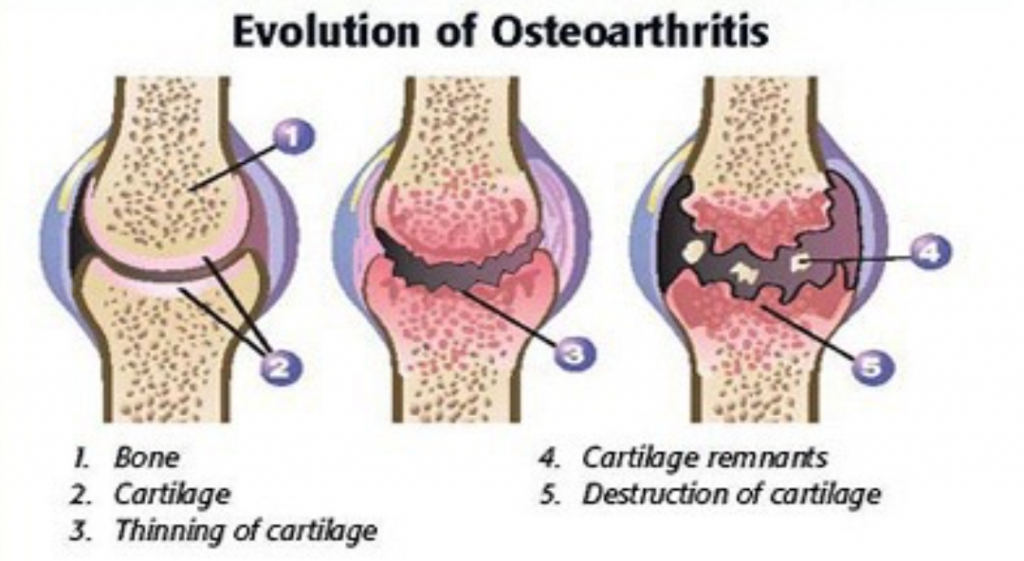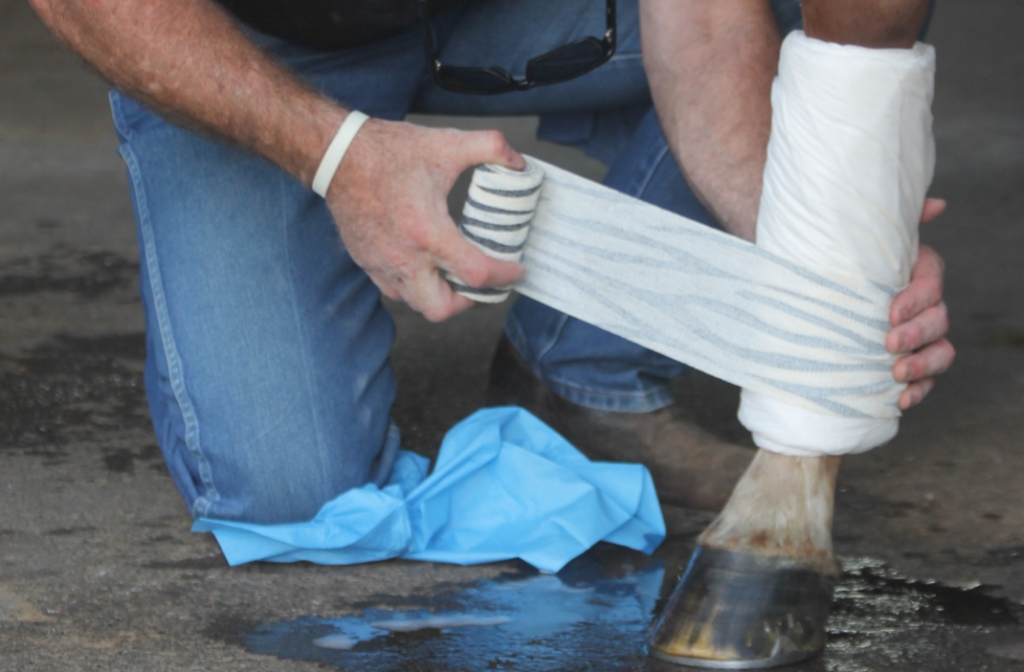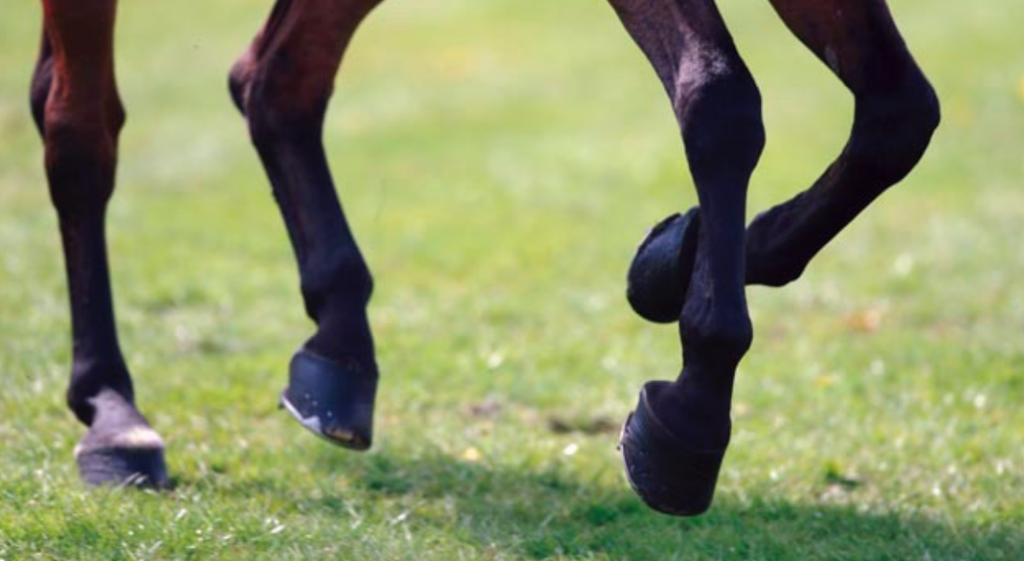By Dr. Steven Allday
Also referred to as Osteoarthritis, degenerative joint disease is characterized by inflammation of a joint due to deterioration of the cartilage at the end caps of the contacted bones. The amount of destruction of this cartilage determines the degree of arthritis and arthritic changes to the joint and has tremendous bearing on the amount of activity the equine athlete can withstand.
The clinical signs associated with osteoarthritis (OA) have a wide range of symptoms. These range from mild effusion to lameness, extreme swelling, heat, loss of range of motion and decreased weight bearing. A typical rule of thumb for OA is that the symptoms are directly proportional to the amount of damage or cartilage loss. With this extensive list of symptoms, it can be difficult to diagnose this difficult disease.

Osteoarthritis is caused by a number of different reasons. These include:
- Trauma to an affected joint as well as by normal “wear and tear” over time.
- Conformation defects that create uneven wear of the cartilage in joints.
- Infections that are introduced into the joint (via injection of septicemia or “blood infection”).
- The immune system whereby the animal’s own defenses start destroying the surrounding structures and eventually the cartilage as well.
- Injecting cartilage-destroying compounds into joints.

The best way to keep your horse from encountering any setbacks in training due to the effects of OA are to develop a routine that evaluates your horse regularly. You should palpate all four of your horse’s limbs and see if they are symmetrical in size and range of motion upon flexion. In addition you need to evaluate your horse’s normal gait at the walk and trot prior to tacking up. Lastly, you should notice your horse’s posture in its stall and notice if they lay down more than normal or tend to pile bedding under their front feet. Anything that is a break from your horse’s regular behavior or routine could be an early sign of change or joint discomfort. The earlier you recognize these breaks from their normal routine the faster you can start to make proper steps to make them comfortable again.
My favorite saying has always been that “Preventative medicine is much better and smarter than restorative medicine!”
Dr. Steven Allday, DVM specializes in equine sports medicine with a focus on thoroughbred racehorses. Dr. Allday’s veterinary credentials includes multiple Thoroughbred Horses of the Year, thirteen Triple Crown race winners, and Breeders Cup race winners. He is the developer of the LubriSynHA Family of Products-an all natural, oral joint supplement and Re-Borne whole bovine colostrum that is a safe, non-test boost for your horse’s performance.

